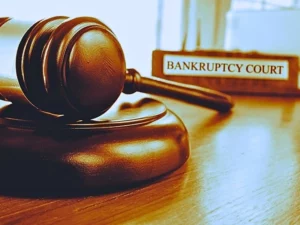Bankruptcy and tax debt: challenges and opportunities
There’s an old saying that “when it rains, it pours.” In other words, problems and challenges can combine to hit you all at once, adding difficulty upon difficulty.
Las Vegas is of course in the desert, where literal downpours are not that common. But figuratively the saying applies here as much as anywhere.
In this post, let’s look at how this can happen with bankruptcy and individual tax debt – and what you can do to meet the cascading challenges.
First, let’s make clear that we’re talking about individual taxes, not business taxes. As we noted in our April 9 post, bankruptcy doesn’t allow for discharge of business tax debt. In fact, the IRS may even try to use the Trust Fund Recovery Penalty to pursue certain individuals at the business for unpaid employment taxes.
Another limitation of bankruptcy is that affects your ability to resolve your tax debt through an installment agreement (IA) or an offer in compromise (OIC). If you are in a bankruptcy process that is still ongoing, you aren’t eligible for an IA or an OIC.
There are, however, also opportunities that a bankruptcy filing offers in dealing with back taxes. If you are eligible for Chapter 7 (a so-called “liquidation” bankruptcy), you can use bankruptcy to discharge tax debt if enough time has passed since your taxes were assessed.
How much time must have passed? There are actually three dates to consider: three years since the due date (plus extensions), two years since the filing of a late return, and 240 days after the assessment of the taxes.
To be sure, not everyone qualifies for Chapter 7 because Chapter 7 requires a financial means test. If your income exceeds the thresholds for Chapter 7, you might have to file Chapter 13 instead or have your Chapter 7 filing converted into Chapter 13.
But Chapter 13 also offers opportunities for addressing tax debt. But you’ll have to work out a repayment plan for your debts. And you can’t discharge tax debt until you complete the repayment plan.
We should also note that if the IRS has already filed a federal tax lien against you, it turns the government’s claim against you for back taxes into secured debt. And secured debt can’t be discharged in either Chapter 7 or Chapter 13.





